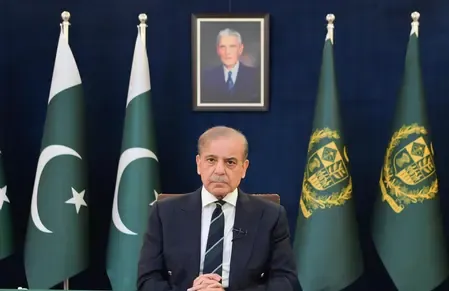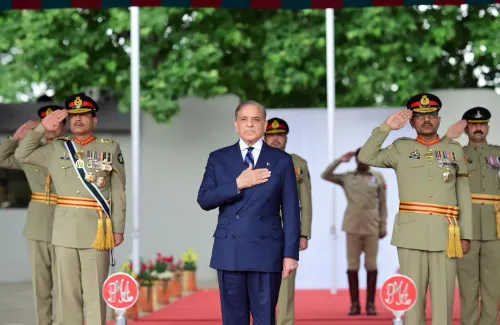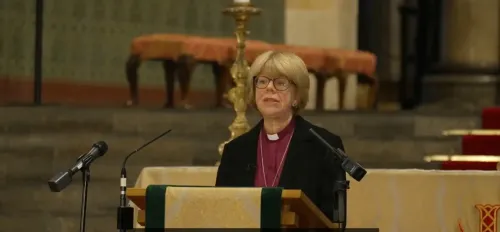Did Pakistan Reverse Its Support for Trump's Gaza Peace Plan?

Synopsis
Key Takeaways
- Pakistan's Deputy PM reversed support for Trump's Gaza peace plan.
- Claims the plan differs from the draft by Muslim nations.
- Prime Minister Sharif faced backlash for initial endorsement.
- Joint statements from Muslim nations support Trump's efforts.
- Trump's plan includes provisions for hostages and peace negotiations.
Islamabad, Oct 3 (NationPress) Just days after officially backing U.S. President Donald Trump’s Gaza peace initiative, Deputy Prime Minister and Foreign Minister Ishaq Dar made a surprising U-turn on Friday, altering Islamabad's position.
Dar asserted that the 20-point plan introduced by Trump did not correspond with the draft put forth by Muslim countries, as reported by local media.
"I clarified that the 20 points publicly announced by President Trump do not represent our views. Modifications were made to our original draft. I have documentation to support this," leading Pakistani newspaper Dawn quoted Dar during a session of the National Assembly on Friday.
"This is the final outcome, and there is no place for political maneuvering," he stated.
Dar's comments followed a recent endorsement from Pakistani Prime Minister Shehbaz Sharif regarding Trump's proposal to address the Gaza crisis, a stance that provoked significant backlash throughout the nation.
"I firmly believe that lasting peace between the Palestinian community and Israel is crucial for fostering political stability and economic development in the region. I also believe that President Trump is fully committed to facilitating this vital and urgent agreement," Sharif expressed on X, praising Trump's 20-point plan aimed at ceasing hostilities in Gaza.
"I commend President Trump’s leadership and the crucial role of Special Envoy Steve Witkoff in ending this conflict. I strongly advocate for the realization of the two-state solution to ensure enduring peace in the area," he added.
Earlier this week, a joint statement from the Foreign Ministers of Pakistan, Qatar, Jordan, the United Arab Emirates, Indonesia, Turkey, Saudi Arabia, and Egypt acknowledged Trump's efforts to conclude the Gaza war.
"The ministers expressed their willingness to engage positively and constructively with the United States and the parties involved to finalize the agreement and guarantee its execution, ensuring peace, security, and stability for the region’s populations," the joint statement issued on Monday stated.
The White House unveiled the 20-point peace plan to resolve the Israel-Hamas conflict in Gaza following a meeting between Trump and Israeli Prime Minister Benjamin Netanyahu at the White House.
Speaking to the press alongside the Israeli PM, Trump remarked that if Hamas accepts the proposal, the hostages would be released and the conflict would come to an end.
"Now is the time for Hamas to agree to the terms of the plan we’ve introduced today. I’m hearing that Hamas is eager to finalize this," Trump stated.









